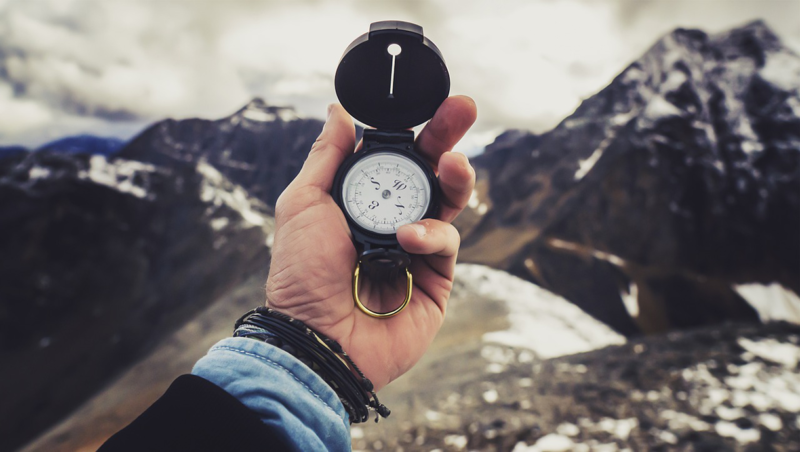
In an emergency, knowing basic survival skills can make a critical difference. Whether you’re an outdoor enthusiast, a traveler, or someone interested in preparedness, these essential survival skills equip you to handle unexpected situations with confidence. This guide covers practical, life-saving skills that everyone should know.
1. Building a Shelter
A shelter protects you from harsh weather conditions and keeps you warm. Knowing how to quickly set up a basic shelter is crucial for survival in the wilderness or during natural disasters.
- Find a Suitable Location: Look for a dry, flat area away from hazards like falling branches or flood zones.
- Use Available Materials: Use natural materials like branches, leaves, or even a tarp to create a shelter that blocks wind and insulates you from the ground.
- Types of Shelters: The lean-to, debris hut, and A-frame shelter are popular structures that provide protection and are relatively easy to construct.
2. Starting a Fire
Fire provides warmth, purifies water, and helps signal for rescue. Being able to start a fire in adverse conditions is one of the most important survival skills.
- Gather Fire-Starting Materials: Collect tinder (dry leaves, bark), kindling (small sticks), and fuel wood (larger logs) to keep the fire going.
- Using Different Methods: Practice starting a fire with matches, a lighter, or even friction techniques like the bow drill or hand drill.
- Fire Safety: Clear the area around your fire to prevent spreading and always extinguish it fully when done.
3. Finding and Purifying Water
The human body needs water to survive, and dehydration can set in within a few hours in extreme conditions. Knowing how to locate and purify water is essential.
- Finding Water Sources: Look for natural sources like rivers, lakes, or rainwater, and follow animal tracks or green vegetation as indicators of water.
- Purification Methods: Boiling water is the most effective purification method. Other options include water purification tablets, filters, or solar stills.
- Avoid Contaminants: Avoid water near industrial areas or stagnant pools, which may contain harmful bacteria and chemicals.
4. Basic First Aid
Knowing how to administer first aid can prevent minor injuries from worsening and may even save a life. A basic understanding of first aid can help in both urban and wilderness survival situations.
- Treating Wounds: Clean wounds with purified water and cover them with a sterile dressing to prevent infection.
- Managing Shock: Keep the person calm, lying down, and warm to prevent shock, which can occur after injuries.
- Learning CPR: Knowing how to perform CPR is essential, as it can keep someone alive until help arrives.
5. Navigating Without GPS
If you get lost, knowing how to navigate using natural indicators or a compass can help you find your way back to safety.
- Using the Sun and Stars: The sun rises in the east and sets in the west, while the North Star helps guide direction at night.
- Reading a Map and Compass: Learn how to use a compass with a topographic map for accurate navigation.
- Identifying Landmarks: Note prominent features like mountains, rivers, or trees to help track your location.
6. Foraging for Edible Plants
In a survival situation, knowing which plants are safe to eat and which are not can be life-saving. However, never consume plants unless you’re absolutely certain they’re safe.
- Identify Common Edibles: Familiarize yourself with edible plants in your region, such as dandelions, clover, and certain berries.
- Avoid Unknown Plants: Never eat a plant you cannot positively identify; some plants can be toxic and dangerous.
- The Universal Edibility Test: If unsure, use this test by tasting a small amount and waiting for adverse reactions. However, this should be a last resort.
7. Signaling for Help
In an emergency, signaling for help increases your chances of rescue. Effective signals are visible from afar and easily recognizable.
- Build Signal Fires: Create three fires in a triangle, as this arrangement signals distress to rescuers.
- Use Reflective Surfaces: Reflect light using mirrors, foil, or even a smartphone screen to signal aircraft or nearby people.
- Whistles and Noise Signals: A whistle can carry farther than your voice. The standard distress signal is three short blasts.
8. Self-Defense Techniques
While nature poses certain risks, you may also encounter dangerous wildlife or situations that require self-defense. Learning some basic self-defense moves can help protect you.
- Stay Aware of Your Surroundings: Awareness can help you avoid potential threats and spot dangers early.
- Defensive Tools: If possible, carry tools like a sturdy stick, bear spray, or a whistle for protection.
- Focus on Escape: In dangerous situations, your main goal should be to escape and seek safety.
9. Weather Awareness and Preparation
Knowing how to read the weather helps you anticipate potential hazards like storms, extreme temperatures, or floods, allowing you to take precautions.
- Identify Weather Patterns: Observe changes in cloud formations, wind direction, and temperature to predict weather changes.
- Prepare for Extreme Conditions: Carry weather-appropriate gear, including rainproof layers, extra clothing, or sun protection.
- Seek Shelter Early: If you detect signs of a storm, find or create a shelter immediately to avoid exposure.
10. Mental Resilience and Survival Mindset
Mental resilience can be just as important as physical skills in survival situations. A positive, focused mindset can help you make calm, effective decisions under stress.
- Stay Calm: Panic can lead to poor decision-making. Practice breathing techniques to maintain composure.
- Set Small Goals: Breaking tasks into small, manageable goals can make challenges feel less overwhelming.
- Maintain a Positive Attitude: A positive mindset boosts morale and helps you persevere in difficult situations.
Conclusion
Knowing essential survival skills empowers you to face emergencies with confidence. From building a shelter to navigating without GPS, each skill plays a crucial role in staying safe. Practice these skills regularly, and you’ll be well-prepared for any situation. Survival is not just about physical preparation; it’s about having the mental resilience and adaptability to overcome any obstacle that comes your way.








